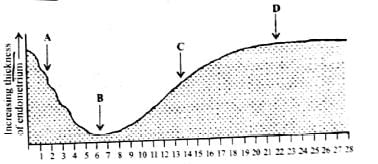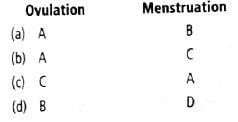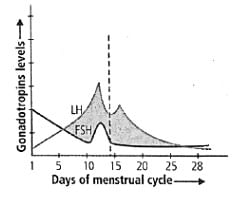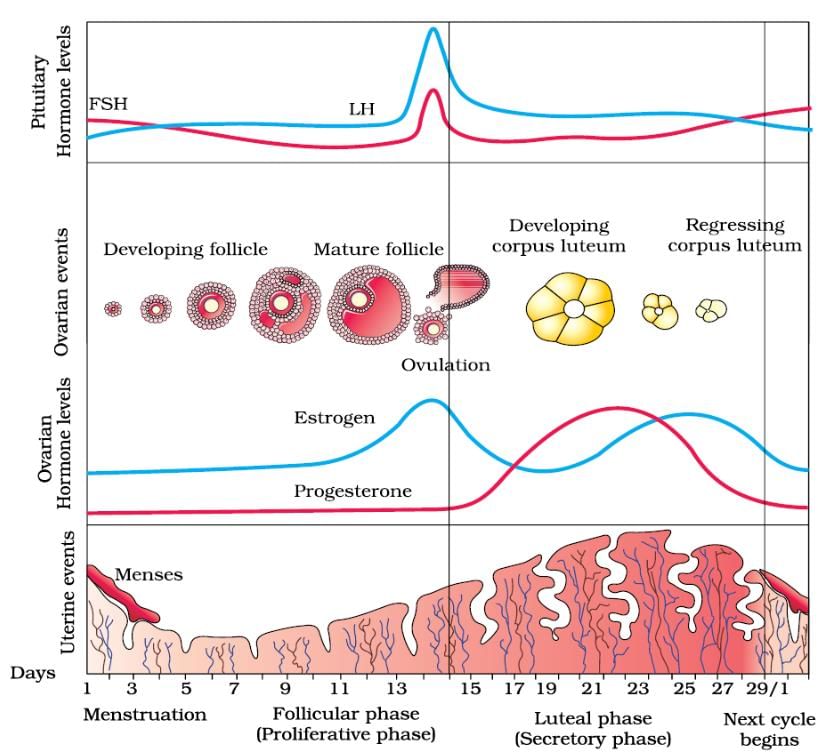Test: Menstrual Cycle (NCERT) - NEET MCQ
10 Questions MCQ Test - Test: Menstrual Cycle (NCERT)
During which phase of the menstrual cycle does the endometrium become thick and glandular?
Read the following statements about menstrual cycle and select two correct statements.
(i) Lack of menstruation may be indicative of pregnancy.
(ii) The changes in the ovary and the uterus are induced by changes in the levels of ovarian hormones only.
(iii) LH surge induces ovulation.
(iv) If fertilisation occurs, corpus luteum degenerates.
(i) Lack of menstruation may be indicative of pregnancy.
(ii) The changes in the ovary and the uterus are induced by changes in the levels of ovarian hormones only.
(iii) LH surge induces ovulation.
(iv) If fertilisation occurs, corpus luteum degenerates.
Below is given the unorganised list of some important events in the human female reproductive cycle. Identify the correct sequence of these events and select the correct option.
(i) Secretion of FSH
(ii) Growth of corpus luteum
(iii) Growth of the follicle
(iv) Ovulation
(v) Sudden increase in the levels of LH
(i) Secretion of FSH
(ii) Growth of corpus luteum
(iii) Growth of the follicle
(iv) Ovulation
(v) Sudden increase in the levels of LH
Withdrawal of which of the following hormones is the immediate cause of menstruation?
If mammalian ovum fails to get fertilized, which one of the following is unlikely?
The correct sequence of the various phases of a typical menstrual cycle is:
For human female which of the following is incorrect?
During the follicular phase of the menstrual cycle, which of the following occurs?
I: The primary follicle grows and becomes a fully mature Graafian follicle.
II: The endometrium of the uterus regenerates through proliferation.
The accompanying diagram shows the changes that take place in the endometrium during a normal menstrual cycle. Identify the changes and select the correct option.


Study the graph carefully and correlate the hormone levels on

(i) 1-5 days
(ii) 12-14 days
(iii) 25-28 days (if the ovum is not fertilised).















